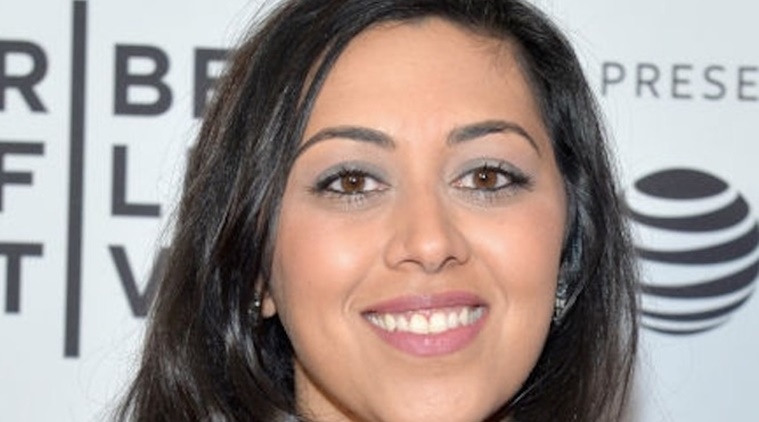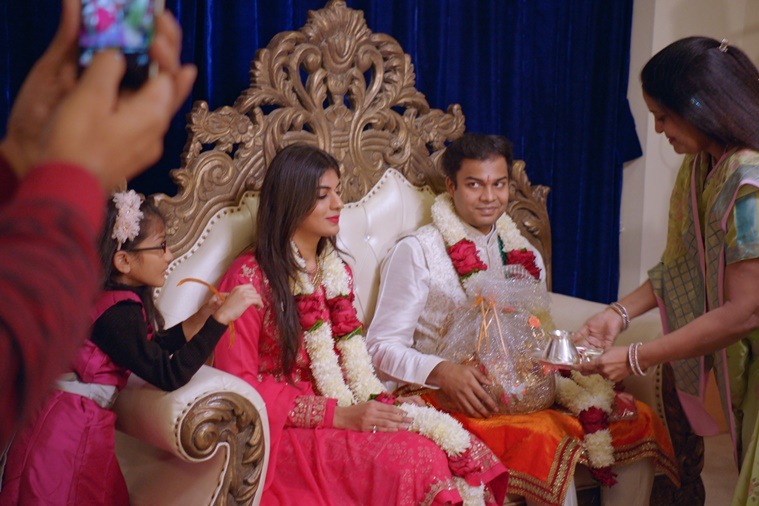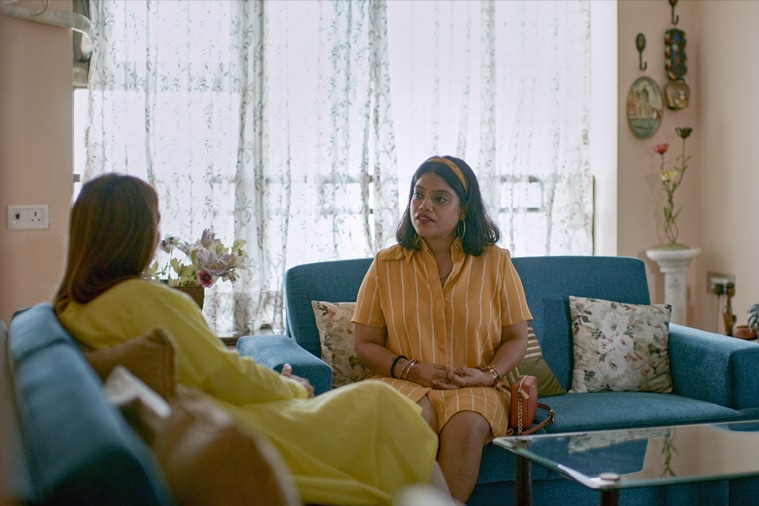 Director Smriti Mundhra on the show Indian Matchmaking and more. (Source: IMDB)
Director Smriti Mundhra on the show Indian Matchmaking and more. (Source: IMDB)
Smriti Mundhra has her feet firmly rooted in reality. If A Suitable Girl, a 2017 documentary was on the struggles of three Indian girls as they tackle their dreams, family pressure and marriage, St Louis Superman, was a 2019 documentary on rapper and former politician Bruce Frank Jr and his tumultuous journey of becoming a leader. Now, with Indian Matchmaking, the reality show on Netflix, she lays bare the idea of arranged marriages in India. “I think reality is far more fascinating than fiction,” she says. Daughter of late filmmaker Jag Mundhra, who made Bawandar (2000), Mundhra grew up surrounded by films. In an email from Los Angeles, Mundhra speaks about the show, her cinematic influences and her next project. Excerpts:
How did the idea of Indian Matchmaking come about?
I wanted to make a dating show from the cultural perspective of Indians. We have a complicated relationship with the idea of marriage and I thought it would be an interesting topic to explore.
How did you first meet Sima Taparia, the matchmaker in the show?
It was very interesting, I met Sima didi around 2008 when my family was trying to find a groom for me. She was as blunt, straightforward and charming then as she is now.
The show has spurred a fair share of memes. Did you anticipate that?
The memes are so amazing. I can never get over how creative and clever people are. I had a feeling Sima didi would become a meme sensation.
There is an interesting mix of participants in the show, from a career woman to a divorcee and someone who has a less-than-perfect family background. How did that happen?
We talked to nearly 500 of Sima didi’s clients. We wanted to present many diverse points of view about marriage, and include people who challenge our narrow ideas of what makes a ‘good’ match.
Most of the people featured in the show, with the exception of Vyasar — a public school teacher — are from very affluent backgrounds. Why the need to focus on a certain class of people?
Much of it was a function of who was willing to participate. But hopefully we’ll have a chance to explore this further from other perspectives if the show continues.
Caste and class have always mattered in arranged marriages. Yet these issues don’t come up in the show.
We were honest to the perspectives of the participants. I don’t think anybody mentioned caste and class directly. In some cases, it might have been implicit, but in most cases, it wasn’t a factor.
 A still from Indian Matchmaking. (Source: Netflix 2020)
A still from Indian Matchmaking. (Source: Netflix 2020)
The show has received polarising reviews. While many have said that it’s a reflection of how a certain class of people live, others have criticised it for being misogynistic, patriarchal, regressive and outdated.
The show is a reflection of where we are as a society when it comes to marriage. There is a constant push and pull between conservative ideals and progressive demands; the show explores that tension.
In a country where women still can’t choose their way of life, and have to often submit to the demands of parents, husbands, and society, don’t you think criticism – like ‘she needs to be flexible’ and ‘she’s too rigid’ for those who are career-driven and strong-minded — is doing more harm than good?
No, because we as a society can only de-program ourselves of deeply-ingrained biases when we can identify them. If the show has helped us identify some of the ideas we’ve held on to for generations that now need to change, I think that’s a good thing.
Did your parents have an arranged marriage?
Yes, they did. My mother was 16 and my father was 21 when they got married. The marriage was arranged by their fathers, who were good friends. I think my mom was asked once if she objected to marrying my dad. She didn’t, because he was a handsome, Ph.D. student studying in America. Thankfully, they had a wonderful and equitable partnership that lasted until the day my father passed away.
 A still from Indian Matchmaking. (Source: Netflix 2020)
A still from Indian Matchmaking. (Source: Netflix 2020)
What influences of your father, late filmmaker Jagmohan Mundra, do you carry with you?
My father was and continues to be my biggest inspiration. He made me watch films with him since I was six years old. I remember seeing Mira Nair’s Salaam Bombay! (1988) with him. I was a child, but I was so blown away. But more than a cinematic influence, it’s the humility and humanity he taught me that I consider his legacy and my inheritance.
ALSO READ | 59% millennials would like to have a planned marriage: Survey
Was yours a filmy household?
Yes, quite literally. Because my parents were in the business, we had famous actors and filmmakers staying at our house in Los Angeles all the time. Anybody who came from Bollywood to L.A. stayed at our house, or at least came over for chai.
What’s next?
My next project is a docu-series that explores Bollywood through the eyes of some of its biggest idols.